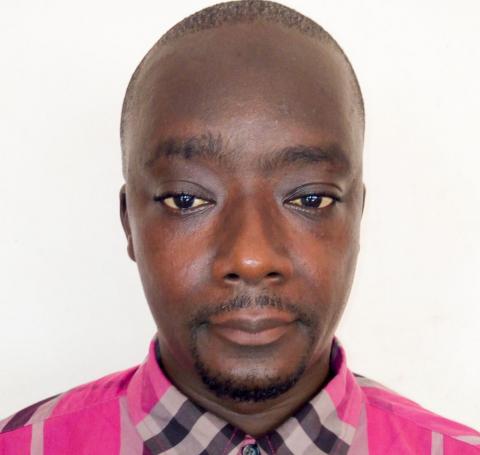By Kemo Cham
After five years of operation, the UK-funded governance initiative, Strengthening Accountability and Building Inclusion [SABI], is drawing to a close, and the implementing agencies are now focusing on the sustainability of the gains realized through the project.
Officials from Christian Aid and FOCUS 1000 say Sierra Leoneans must ensure that the gains made in the last five years through the project are sustained.
SABI, which was designed as a citizen-led initiative with the goal of increasing service delivery and accountability in governance, is implemented by a consortium of leading international and Sierra Leonean partners, which are led by Christian Aid.
The project, which is funded by the British government through UK Aid, specifically seeks to link the service users [communities] to the service providers [government]. It does so through community engagement.
The project basically seeks to support the building of relationships between citizens and the state, says Dr Abu Pratt, Programmes Director at FOCUS 1000, at a press briefing organized to update the public about the gains made and key lessons learnt through the project.
Dr Pratt chaired the briefing which was hosted at Njala Venue Hall, along Lumley Beach Road in Freetown on Wednesday, February 24.
The SABI project was initially designed for a four-year period, with presence in every district of the country, specifically aimed at increasing awareness of, and demand for, the delivery of basic services, particularly targeting the sectors of health, education, social protection, water and energy. In 2020 it was extended for a further one year.
The project was first launched in 2016, coinciding with the end of the world’s deadliest Ebola epidemic, which affected mainly Sierra Leone and neighboring Guinea and Liberia. That epidemic ravaged the three Mano River Union countries.
For Sierra Leone, Ebola’s impact compounded the problems of infrastructure deficit caused by its eleven years (1991-2002) of civil war.
Ebola also escalated a tradition of mistrust between the public and government, which was partly blamed for the devastation caused by the epidemic. SABI was designed in response to these issues.
The implementing partner organizations say its intervention has inspired a new way of working in the country. They note that throughout the last four years of direct support to communities, the programme has contributed towards improvement in basic services, building relationships between citizens and the state, supporting the government’s development plan and promoting gender equality and social inclusion.
“Over the years, the programme has succeeded in ensuring that citizens demand and get services and we have evidences for this,” says Saiku Bah, SABI Team Lead at Christian Aid.
“Because of SABI, beneficiary communities have gained a lot of experience in governance and accountability approaches,” he adds.
Mr Bah says that for a while, prior to SABI, people felt that politicians were not responding to their needs. He says because of SABI they now see a different situation.
Data from the SABI project implementers show that it has reached over 305, 000 people over the last four years, built 18 schools and rehabilitated 31 existing schools. Some 20 health centers were constructed and 31 rehabilitated. In terms of creating access to water, 34 facilities were built and 38 rehabilitated.
Through its engagement with beneficiary communities, SABI has influenced the review of four policies and the formulation of one new one.
“We have shifted the focus from CSOs and NGOs working as direct service providers to supporting the state to improve its own service delivery,” proclaims a statement from the partners which details progress of the project. It adds that it has “enabled citizens to move away from the traditional approach of criticizing the state, rather than recognizing the systematic challenges faced by all individuals and institutions in a resource-constrained setting.”
Through the SABI approach, the community people are shown the governance pathway to know where to seek help. They are also encouraged to initiate development for themselves, instead of waiting for government.
In Ropolon Community in the northern Bombali district, for instance, access to school and health services became challenging for the people when the main bridge leading to neighboring Robain Community collapsed. The bridge is said to have been in existence for almost two decades, connecting them to the regional hospital and major schools in the chiefdom. With knowledge gained from SABI, the community people worked together, mobilized local resources and built the bridge with local materials. Now the people of Ropolon have regained access to health and educational services.
In Mayolla in the neighboring Karene District, the people had built a health center for themselves. But the facility wasn’t approved by the Ministry of Health, which meant that it couldn’t be staffed with trained health workers and they couldn’t receive any support in the form of medication from the government. During a SABI outreach, a representative of the Ministry of Health took the community people through the pathway to get approval, and they succeeded in getting their center approved in a short period of time.
Elizabeth Musah-Conteh, SABI project manager at FOCUS 1000, says those two communities represented numerous others where the people have undertaken initiatives that have changed their lives without having to wait for external help.
Conteh has participated in numerous outreach sessions at communities where the SABI project has been implemented. She says that before now, people had held the belief that the government should do everything for them. The engagement with SABI, she says, has changed that perception.
SABI, Conteh notes, also inculcated social inclusion on the development agenda, thereby bringing onboard the youths, women and people living with disability, who were usually marginalized, into development programmes.
“As the project comes to an end, SABI is focusing on sustenance of this progress,” Ms Conteh says.
Other implementing partner organizations of the SABI project include Restless Development, Social Development Direct, Sierra Leone Social Aid Volunteers, and RADA-SL.
Copyright © 2021 Politico Online








